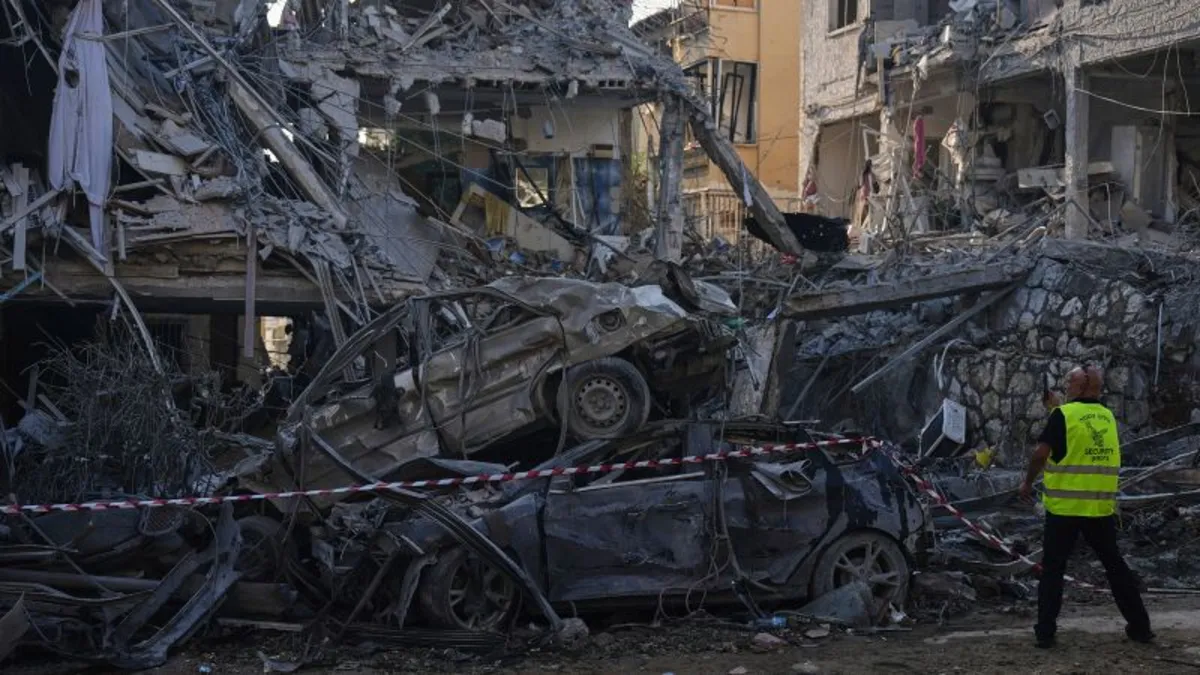
In a significant escalation of military activity in the Middle East, Israel launched a series of airstrikes targeting approximately 150 locations in Iran overnight, according to an official from the Israel Defense Forces (IDF). This operation, described as one of the most extensive military actions in the region in recent decades, aimed to disrupt Iran's nuclear ambitions and military capabilities. The IDF claims that the strikes have significantly hindered the Iranian nuclear program.
In the aftermath of the strikes, Iran reported that dozens of its personnel were killed, prompting a swift retaliatory response. Tehran launched four barrages of ballistic missiles towards Israel, resulting in three fatalities and dozens of injuries, as detailed by the IDF during a recent briefing. The IDF stated that the airstrikes specifically targeted Iranian nuclear facilities in Natanz and Isfahan, purportedly causing significant damage, although Iranian officials claimed the damage was minimal.
"Experts have suggested that the strikes only delayed Iran's nuclear progression by a few weeks," the IDF official stated. "However, our intelligence indicates that it will take much longer to repair the damage inflicted." This assertion was backed by claims of concrete intelligence showing Iran's advancements towards developing a nuclear bomb.
Prior to the strikes, Israeli intelligence agency Mossad had reportedly infiltrated Iranian territory, smuggling in weapons to facilitate targeted attacks on critical military assets. The operation included establishing a base for launching explosive drones within Iran, which were subsequently employed to target missile launchers near Tehran. The IDF confirmed that all aircraft involved in the initial strikes returned safely, indicating a successful operation in neutralizing Iranian air defenses.
In an unprecedented move, Mossad released operational footage showcasing drone strikes against missile launchers, providing a rare glimpse into its covert operations. This intelligence gathering played a crucial role in enabling the Israeli air force to strike at senior Iranian military leaders and nuclear scientists.
Israeli Prime Minister Benjamin Netanyahu has been vocal about Iran's nuclear capabilities, claiming that Iran has amassed enough highly enriched uranium for nine nuclear weapons. While Iran maintains that its nuclear program is for peaceful purposes, the International Atomic Energy Agency (IAEA) has reported that Iran has significantly escalated its uranium enrichment, raising alarms internationally.
As tensions escalated, Iran vowed to respond aggressively to the Israeli strikes, with President Donald Trump previously urging Netanyahu to allow diplomatic negotiations to unfold before escalating military actions. However, Israel's resolve to strike Iran was made clear during a recent meeting with U.S. lawmakers, where Netanyahu emphasized the necessity of military action to ensure national security.
Reports indicate that the Israeli strikes resulted in significant civilian casualties, with Iranian state media claiming that at least 60 people were killed in an attack on a residential building in Tehran. The devastation included the deaths of several children, complicating the already tense situation further.
As the conflict escalated, neighboring Jordan reported its first civilian casualties linked to the violence, with two individuals injured by falling debris from an Israeli missile. Jordanian authorities have expressed their commitment to protecting their airspace, successfully intercepting several missiles and drones that entered their territory.
In light of the escalating tensions, Jordan temporarily closed its airspace but resumed flights shortly thereafter. The situation remains volatile, with both Iran and Israel poised for further military actions as regional stability hangs in the balance.
This rapidly developing situation continues to evolve, and further updates will be provided as more information becomes available.